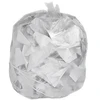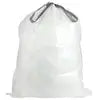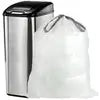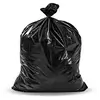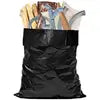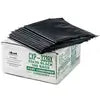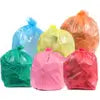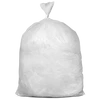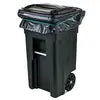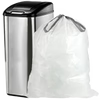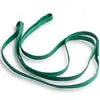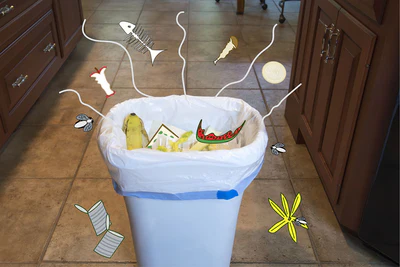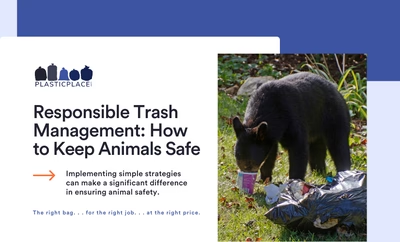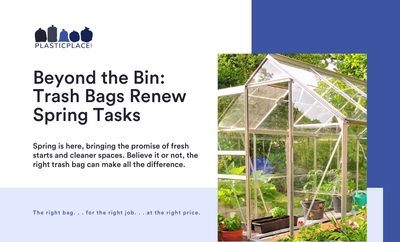Done with your banana? Don’t throw away that peel! That’s perfect material for compost.What is Compost?
According to the EPA’s website, compost is “organic material that can be added to soil to help plants grow.” It’s also a great way to return essential nutrients to your soil.
Compost can be sprinkled on lawns, around trees and bushes as mulch and instead of soil for your houseplants. What’s more, with around 30% of landfill space taken up with yard waste and food scraps (perfect material for composting), creating compost is how you can do your part in alleviating overly-stressed landfill space.
Plus, with the first day of fall fast approaching (September 23, 2014), gathering up your fallen leaves is a perfect time to try your hand at composting.
The Easiest Way to Make Compost
Making compost in a garbage bag (also known as anaerobic composting) is by far the simplest way to make compost. It’s free, requires no tools and you probably already have all the materials in your home to start making garbage bag compost.
Here’s what you’ll need:
1. Two thick black garbage bags; 30-33 gallon bags are a perfect size.
2. One part of “brown” material (dead leaves, small twigs, wood chips, coffee filters, shredded paper, cardboard or newspaper, straw, old and dried flowers).
3. One part of “green” (fruit and vegetable scraps, grass clippings, tea and coffee grounds).
4. One part of soil (including some finished compost to get the process going).
5. Water enough to dampen the mixture.
Directions
Put the brown material in first, followed the green material, then the soil and finally the water. Tie off the bag, making sure no air can enter and put it inside the other black garbage bag. Secure the second bag, put it in a sunny spot if possible, and get comfortable.
After eight weeks, check on your garbage bag compost. You’ll know your compost is ready to use when it becomes dark, has no remnants of food or waste and smells like the fresh compost you get at your nursery. It should look like this: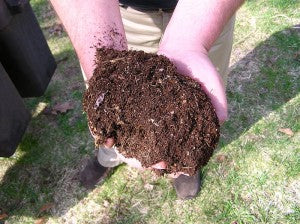
If your compost looks unfinished, let it sit a bit longer. It could take six months to a year to produce good, usable compost.
Composting in a Garbage Bag Tips:
- Store compost bags outdoors in the summer and in a heated basement or garage in the winter.
- Turn your bag once every two weeks to mix up the materials.
- Don’t add more material to your bag.
- Be patient
- Fruits and vegetables
- Eggshells
- Yard trimmings
- Grass clippings
- Houseplants
- Coffee grounds and filters
- Tea bags
- Nut shells
- Shredded newspaper
- Cardboard
- Paper
- Paper towels
- Paper bags
- Leaves
- Cotton clothing (torn up)
- Hay and straw
- Sawdust
- Wood chips
- Cotton and wool rags
- Fireplace ashes
- Hair (human, dog, cat, etc.)
- Rabbit or horse manure
- Black walnut tree leaves or twigs
- Coal or charcoal ash
- Dairy products (e.g., butter, milk, sour cream, yogurt) and eggs
- Diseased or insect-ridden plants
- Fats, grease, lard, or oils
- Meat or fish bones
- Pet wastes (e.g., dog or cat feces, soiled cat litter)
- Yard trimmings treated with chemical pesticides
- Glossy paper or magazines
- Cooked food, pasta, bread and nuts
Biodegradable Bags Don’t Make the Grade for Garbage Bag Composting
Although you may be tempted to use a biodegradable bag to go “all the way” in your environmentally-conscious garbage bag composting project, you may be in for a rude awakening. Biodegradable bags are often quite thin and may not hold up to the heavy load you’re filling it with. Your best bet is to choose a contractor grade thick black garbage bag.
Want Compost Without the Hassle?
Findacomposter.com makes it easy for you. Just enter your zip code to find a local site where you can either drop off material for composting or purchase fresh compost.Sources
http://www2.epa.gov/recycle/composting-homehttp://www.pbs.org/wnet/nature/inside-nature/infographic-how-to-compost/8281/
 4.9 out of 5
4.9 out of 5  Mix & Match: Buy any two products for 10% off!
Mix & Match: Buy any two products for 10% off!












